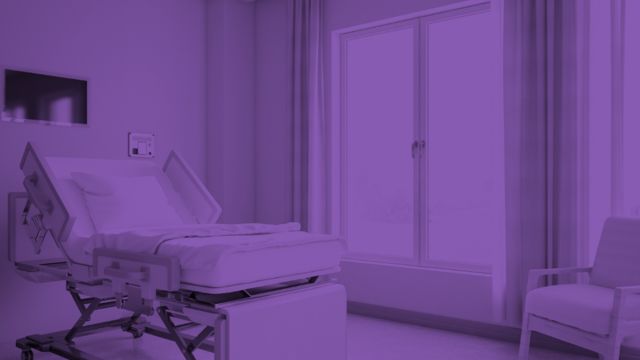Saving Mothers’ Lives: Justice for Incarcerated Moms
All mothers should be able to mother with dignity and grace regardless of whether the child is born in a manger or a prison medical ward.
80% of incarcerated women are mothers.
Pregnant women in state prisons and county jails lack policies to protect mothers and their children. Every year, there are approximately 1400 births in state prisons and county jails. However, there is minimal national statistical data available on abortions, stillbirths, miscarriages, ectopic pregnancies, and maternal mortality rates. Being an expectant inmate does not equal special treatment under the eyes of the law. In most cases, pregnant women are subjected to abuses and denial of maternal and reproductive rights.
As United Methodists, we affirm that motherhood is sacred. Mothers are important figures in our biblical tradition. Women like Eve, Hagar, Sarah, Elizabeth, and Mary, the mother of Jesus, are remembered for their role as bearers of new life.
All mothers should be able to mother with dignity and grace regardless of whether the child is born in a manger or a prison medical ward.
Miyhosi Benton, Associate at the Women and Justice project, was six months pregnant when she was incarcerated. She shares that, “in prison, I had no access to nutritional food. The snack for pregnant mothers was a bologna sandwich. I was always hungry. I was 120 pounds, belly sunken in. You couldn’t even tell I was pregnant.”
This is one of many cases of abuse and denial of care that happens to pregnant women behind bars. In some instances, pregnant women are placed in solitary confinement or unnecessarily restrained with shackles during transportation, labor, delivery, and postpartum because they are seen as a threat. These unjust practices deny the humanity of pregnant mothers behind bars.
Dr. Carolyn Sufrin, a medical anthropologist and OB/GYN at Johns Hopkins School of Medicine, is leading the research on the advocacy and care of women that are incarcerated. Dr. Sufrin explains that “pregnant incarcerated people are one of the most marginalized and forgotten groups in our country.” As the COVID-19 pandemic unravels our world, Dr. Sufrin’s words affirm the experience of people in the US, that are behind bars in unsanitary facilities where social distancing is not possible. Despite this injustice of the State, there are communities, faith leaders, and congressional leaders that are mobilizing to support and free non-violent offenders who are being held in these inhumane conditions.
One of those organizations is the National Bailout. Their current national campaign, #FreeBlackmamas, is organizing to raise funds to pay bail for mothers and caregivers who are awaiting trial in jail for non-violent offenses or are in detention. Arissa Hall, Project Manager at National Bail Out, shares that “Mamas and caregivers should not be left in cages.” Many congregations and community groups have stepped up to partner with National Bail Out to raise funds for mothers and caregivers to return home to be with their families.
As movement at the grassroots level builds, action is moving in Congress to address these injustices. Recently, Representative Alma Adams, Representative Lauren Underwood, and Senator Kamala Harris proposed the Black Maternal Health Momnibus Act of 2020. This package of nine bills aims to improve maternal health. These bills will invest in community-based organizations, grow and diversify the workforce, and support data collection, digital tools, and innovative payment models.
Specific attention in the Momnibus Act is also given to incarcerated women through the Justice for Incarcerated Moms Bill, which asks for an end to the shackling of pregnant women at all levels of incarceration. The bill also seeks to develop programs and increase funding for models of care that support the health and wellness of pregnant mothers. Lastly, the bill asks for national statistical reporting that will inform future policies needed for mothers that are incarcerated.
What you can do
Become a Subscriber
Join Us